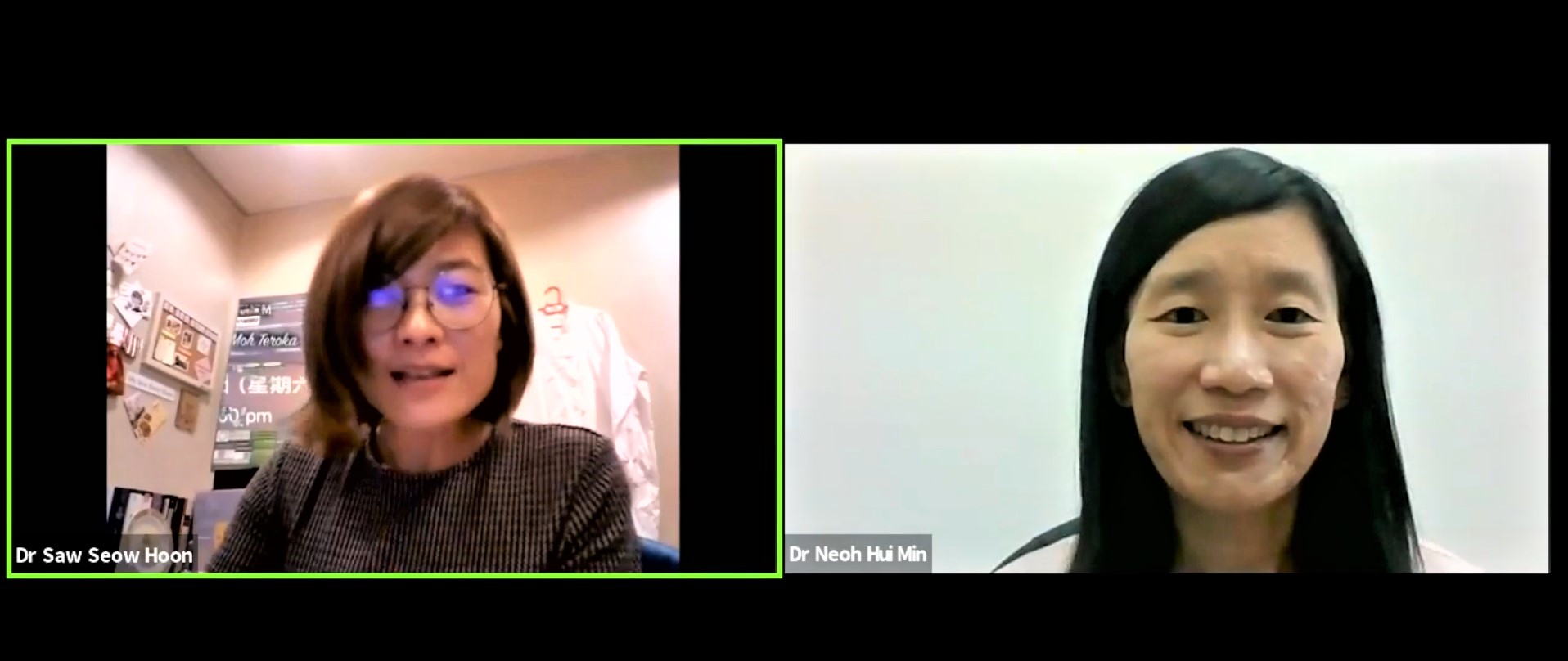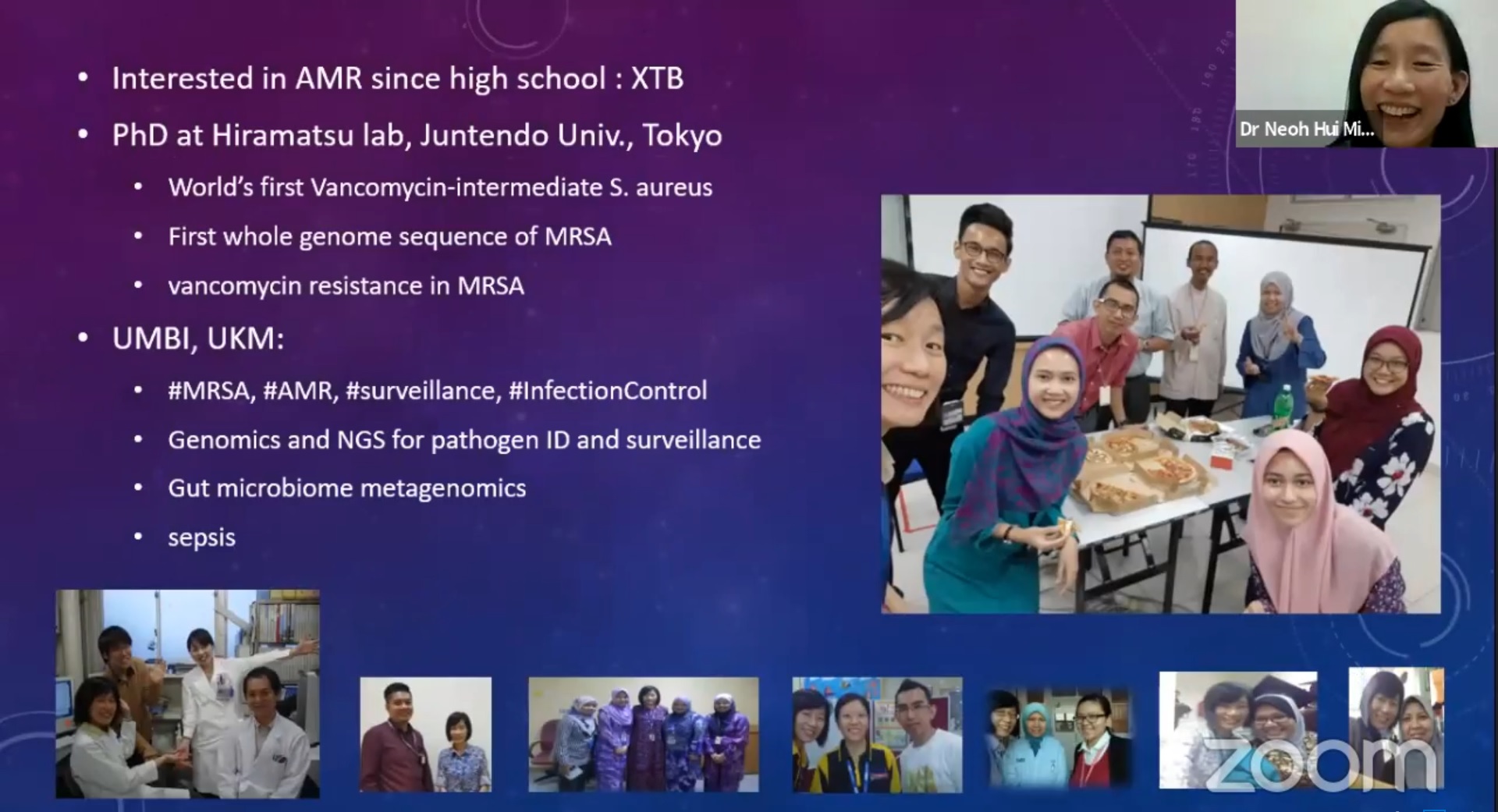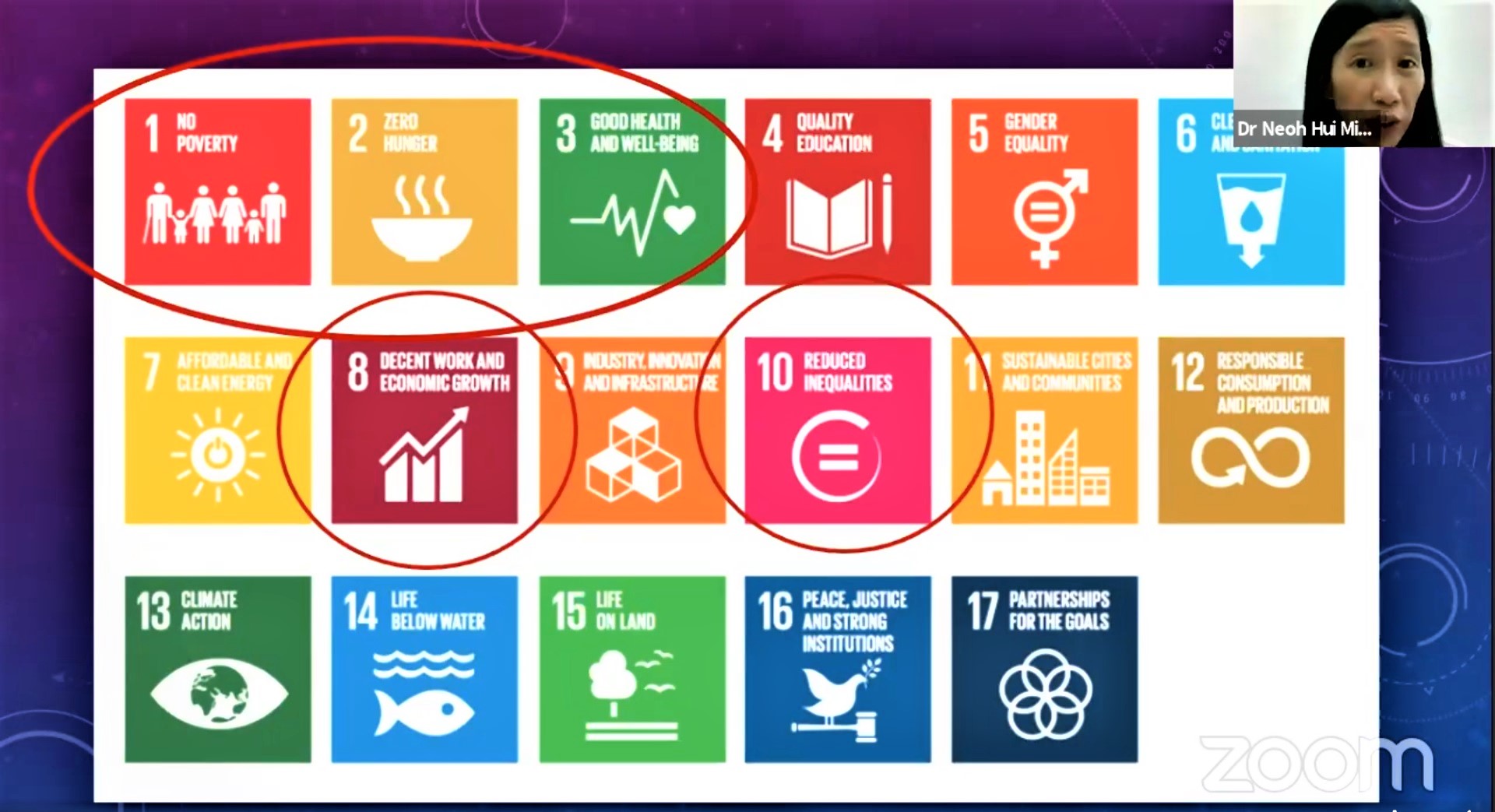
Increasing awareness to tackle the emergence of AMR
UTAR Centre for Corporate and Community Development (CCCD) organised an online talk titled “Thwarting the slow-mo AMR pandemic: What can be done?” on 2 October 2020.
The one-hour talk was delivered via Zoom by Dr Neoh Hui-Min, associate professor and senior research fellow of UKM Medical Molecular Biology Institute (UMBI), Universiti Kebangsaan Malaysia (UKM).

Dr Neoh (right) with the moderator Dr Saw Seow Hoon
Dr Neoh started her talk by explaining the overall idea of antibiotics. She said, “Antimicrobials are inclusive of antibiotics, antivirals, antiparasitic agents and antifungals. For this talk, AMR refers to antimicrobial resistance. Antibiotics are not new concepts. Our ancestors have been using ingredients such as honey and turmeric to treat wounds. However, this early civilisation did not know that it was the active compounds inside these foods that killed the bacteria until Sir Alexander Fleming discovered and isolated Penicillium.”
She mentioned that the discovery of Penicillin about 90 years ago started the golden age of antibiotic discovery. “However, life always finds a way. Ironically, the usage of antibiotic signifies the beginning of the end of the efficacy of the antibiotic itself. Present in the era of the golden age of antibiotic discovery, we found that AMR has been slowly creeping up at the same time,” she said. She added that the matter became worse when many pharma companies left the antibiotic market and the development of antibiotic started to dwindle.
She said, according to a review report on antimicrobial resistance in 2014, it is projected that 10 million deaths would take place due to AMR every year after 2050. “AMR is slow-motion pandemic. Nobody realises that it is actually creeping up,” she said. She described that this situation is akin to a frog in boiling water. “The Covid-19 foretells the world without antibiotics. Look at what is happening in our schools, workplaces, economy and health system,” she said. She also added that AMR undermines the efficacy of modern medicine.
Moreover, Dr Neoh talked about the effort of therapeutics development, infection control and surveillance, and awareness of AMR. She also shared some ideas and alternatives for research that can be done. She stated that there are many different groups working on many approaches on therapeutics, including repurposing the old drugs (e.g. Halicin), vaccines, nanomaterials (e.g. nanosilver), phage therapy, anti-biofilms, and anti-infectives. She pointed out that getting a new antibiotic into the market is not easy. “From the initial molecule synthesis in the lab until selling it in the market, it takes about 10 years,” she explained.
She also stated that Sustainable Development Goals (SDGs) are affected by AMR. Not only SDG 1, 2 and 3, the effect of AMR can also be associated with economic growth (SDG 8) and inequalities (SDG 10). “When we put the effort in preventing the AMR, we are actually contributing towards the achievement of the SDGs,” she said.
She also promoted the World Antimicrobial Awareness Week 2020 (WAAW 2020) during her talk, where the event will be organised by the World Health Organization (WHO) from 18 to 24 November 2020 with the aim to improve awareness and understanding of antibiotics among people all over the world. She concluded her talk by advising people to stay ahead of the AMR curve and prevent this slow-motion pandemic.

Dr Neoh introducing her background before starting the talk

Dr Neoh explaining AMR and its impact on the achievement of specific SDGs
![]()
![]()
![]()
![]()
![]()
© 2020 UNIVERSITI TUNKU ABDUL RAHMAN DU012(A).
Wholly owned by UTAR Education Foundation Co. No. 578227-M LEGAL STATEMENT TERM OF USAGE PRIVACY NOTICE